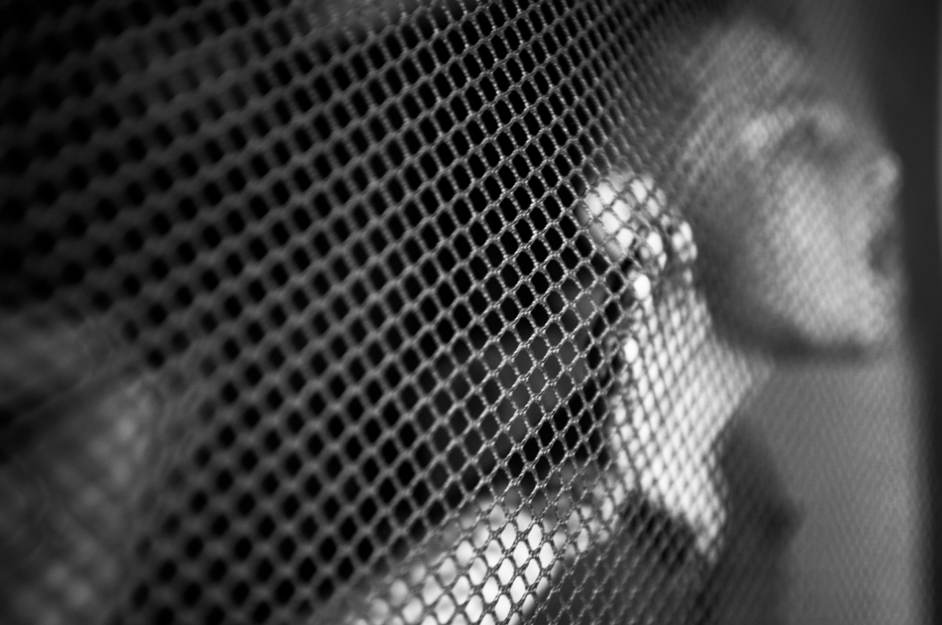
The House Autism Built
"Things that wouldn't bother us might set him off completely," Erin O'Loughlin said. "A lot of it is because of overstimulation and sensory issues. So, we wind up looking for what makes him happy and what makes him tick--whats good for his reality and his world--and then we foster that."
Her son, Marcus O'Loughlin, 8, was diagnosed with autism when he was three years old.
Autism is a developmental disorder that is usually diagnosed in the first three years of a child’s life. It affects the neurological development of social and communication skills. There are various types of autism diagnoses, which are placed on a spectrum. It is still unknown whether the development of autism is related to genetics or prenatal and early childhood environment.
A version of this was published on TIME.com along with new findings from the CDC that indicate a 30% increase in autism diagnoses since 2012.
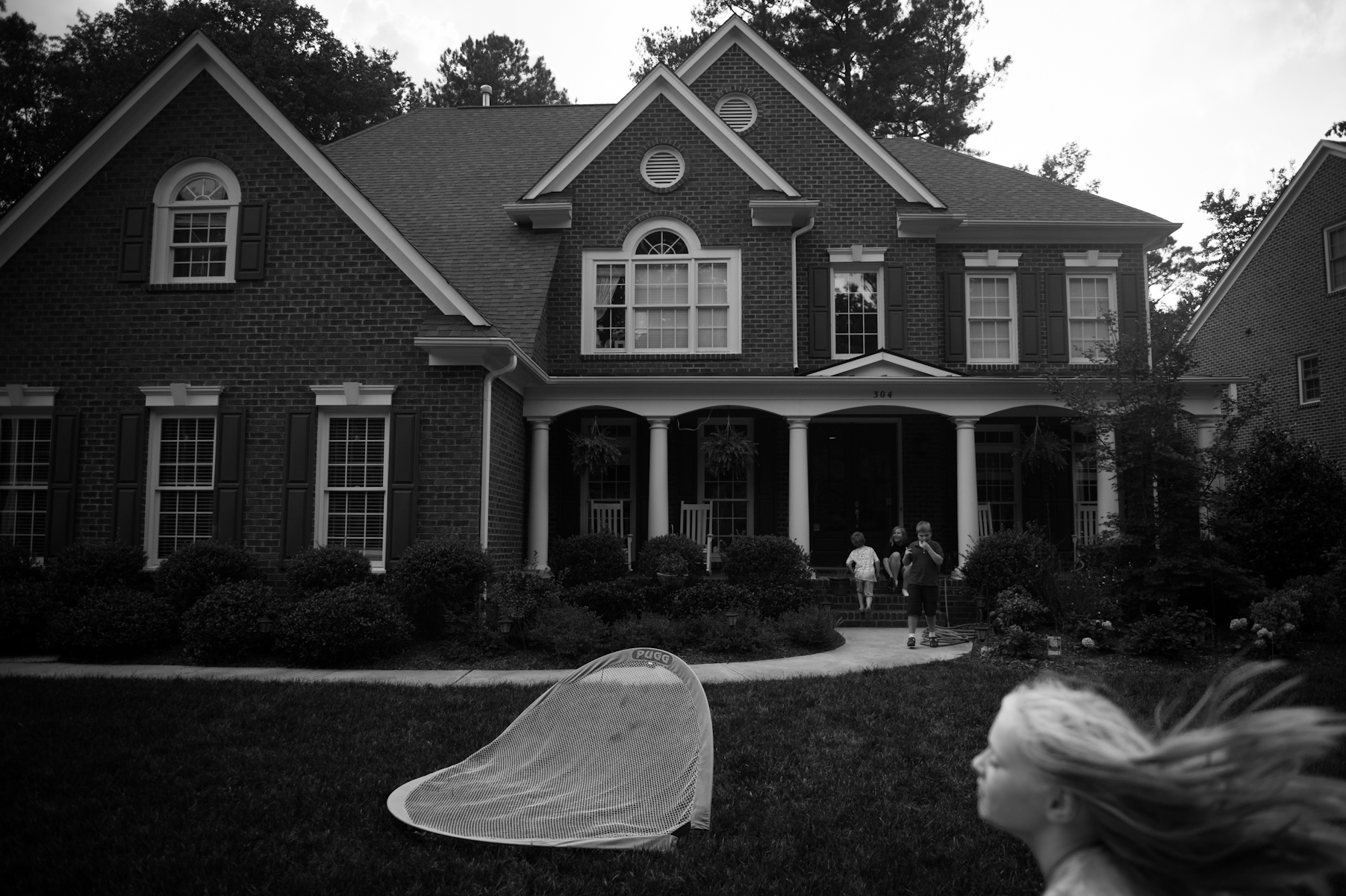
The O'Loughlin Family lives in suburban Cary, NC in one of a row of similarly built houses, but nothing is similar about the O'Loughlin Family.
Erin said, "Marcus and his autism are all my children have really ever known. Autism has always been a part of our lives so it is just a part of who they are. It is hard on Jordan and Brendan. I spend a good portion of my thoughts worrying about them resenting me later on. There is a term out in the special needs community called glass children. A glass child is a sibling of a special needs child whose parents are so consumed with the needs of their brother or sister that they look straight through them as if they are made of glass. So I am constantly keeping myself in check and trying not to take for granted their emotional health and their very real needs of their typical childhood. I know they take in and absorb everything that goes on in our house with Marcus, except that they cope with it with the coping skills of a child. We try our hardest to balance the needs of Marcus versus Jordan and Brendan’s needs versus our marital needs versus our family needs and its all a huge balancing act."
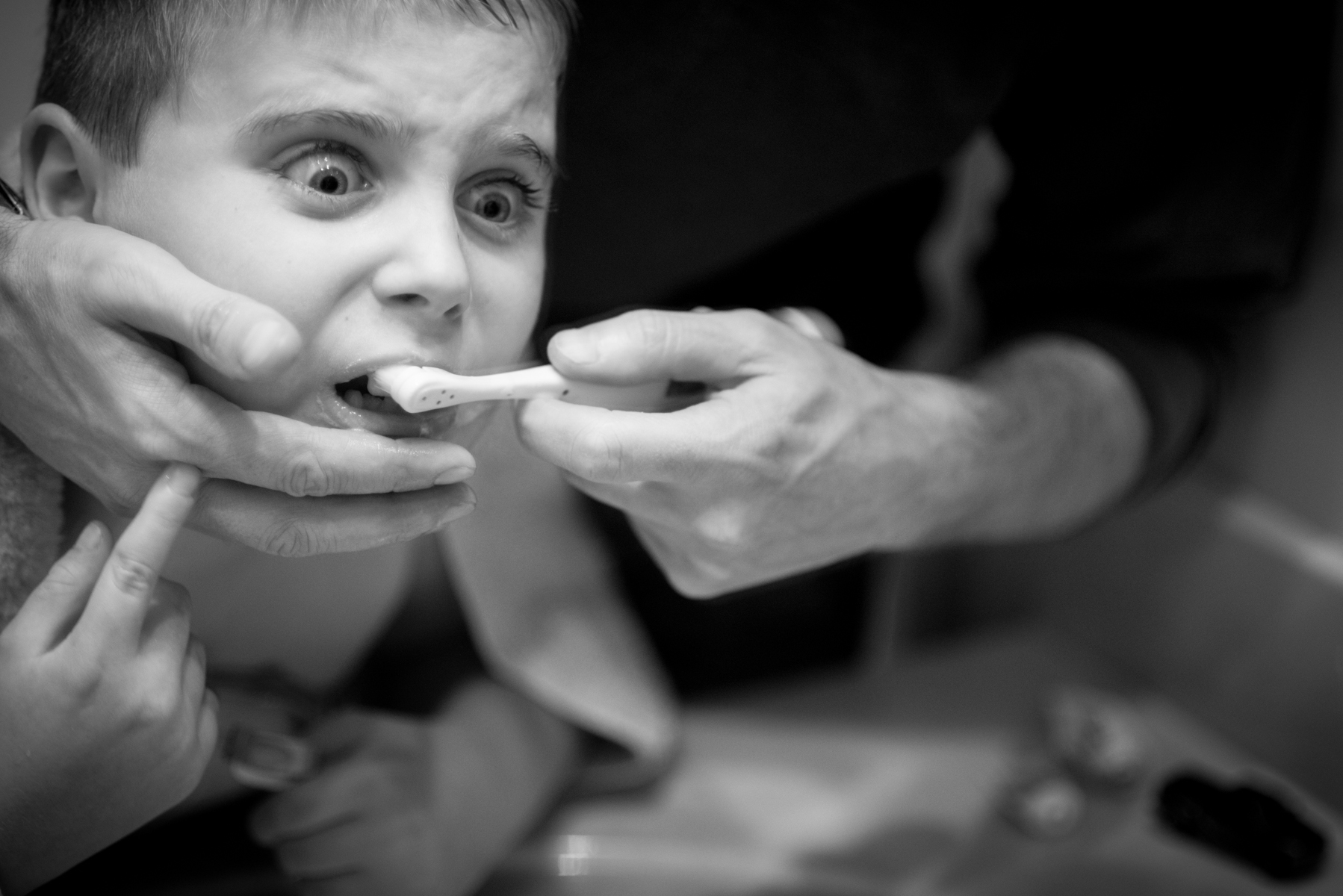
Erin said, "I often try to think what it must be like in his little brain and I envision fireworks, just fireworks going off. I don’t know what it is like in there, but it must be like living with constant noises and sounds and explosions going off all the time."
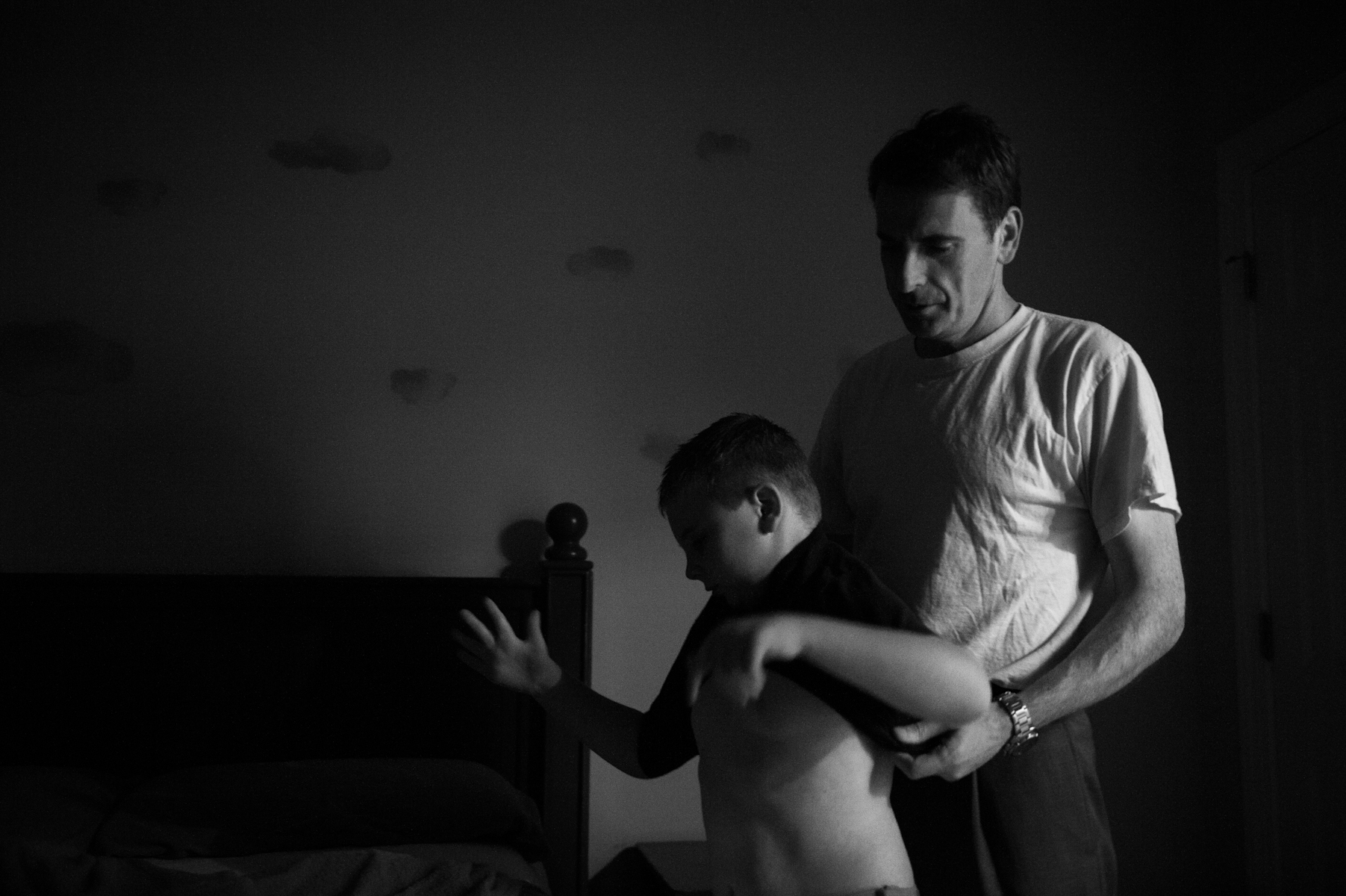
"We know in our hearts that Marcus is going to need assistance for the rest of his life," Erin said. "There's still this hole in our community and our society that exists for adults with autism. It does not stop at age 18, it is not something you grow out of."
One in every 88 children is diagnosed with autism. Erin is concerned that "10-15 years from now we're going to have a huge problem on our hands. Not all of them are severe enough where they are going to need constant intervention and services for the rest of their lives, but many of them are."
"As far as Marcus living a regular normal life with everybody else in the world, that might not be right for him and he might not be happy with that, so why should I push that on him? We just want Marcus to be happy. We want him to reach his full potential, whatever that might be."
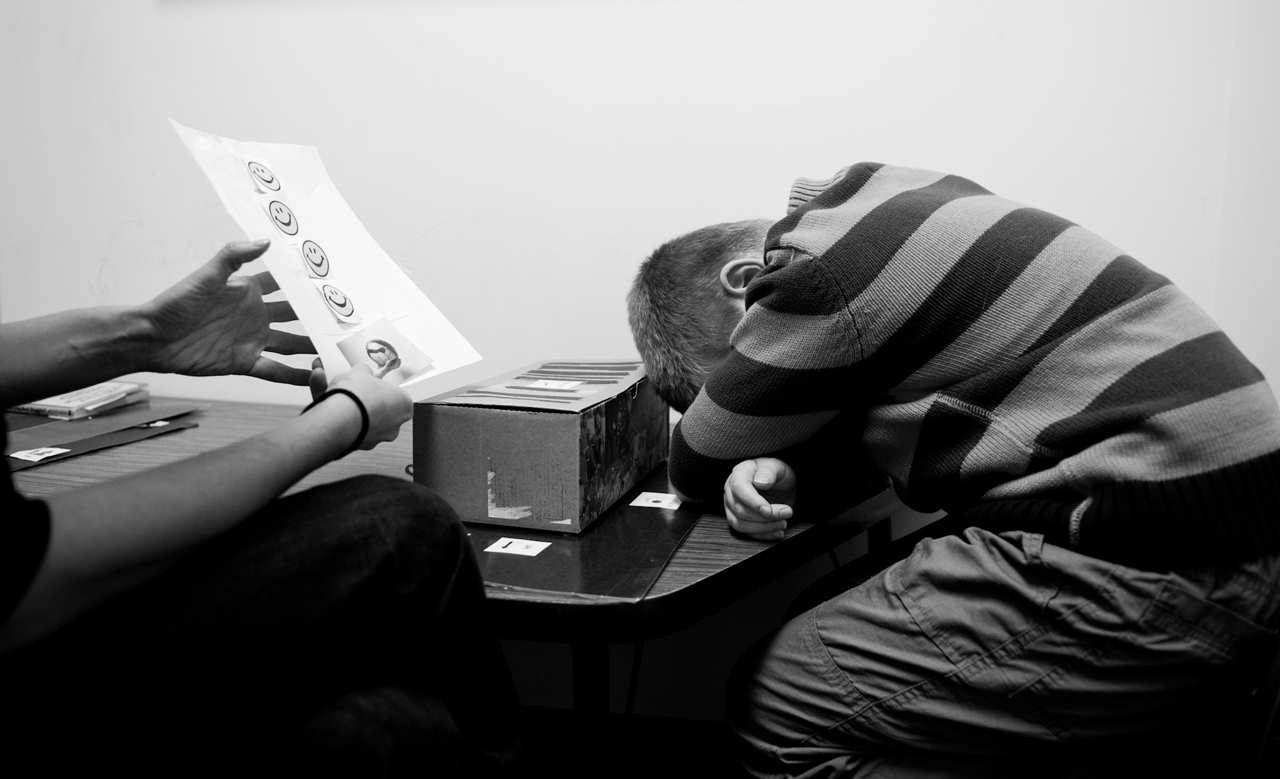
Marcus has a one-on-one session with his teacher, Kim Lopes, at Middle Creek School. He has been in the same autism-specific classroom for two years. However, he must move up to a higher class level next year, despite being unprepared for the material.
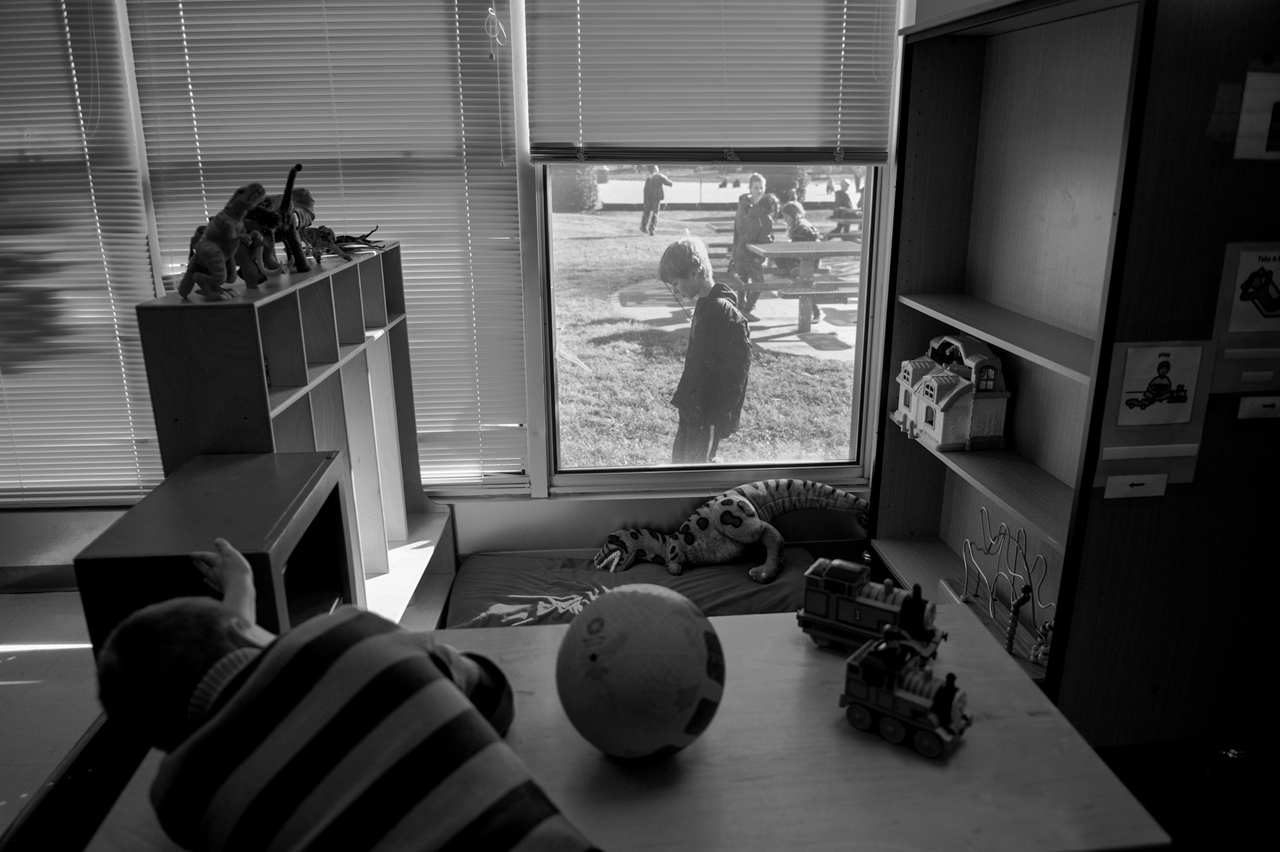
Marcus spends much of his time at school watching children play outside. Middle Creek Elementary is primarily for what the autism community calls "typical" children--those who do not have developmental disabilities. Erin considers herself lucky that there is an autism-specific classroom in her area. This type of classroom is becoming much less common and is vital to Marcus' development.
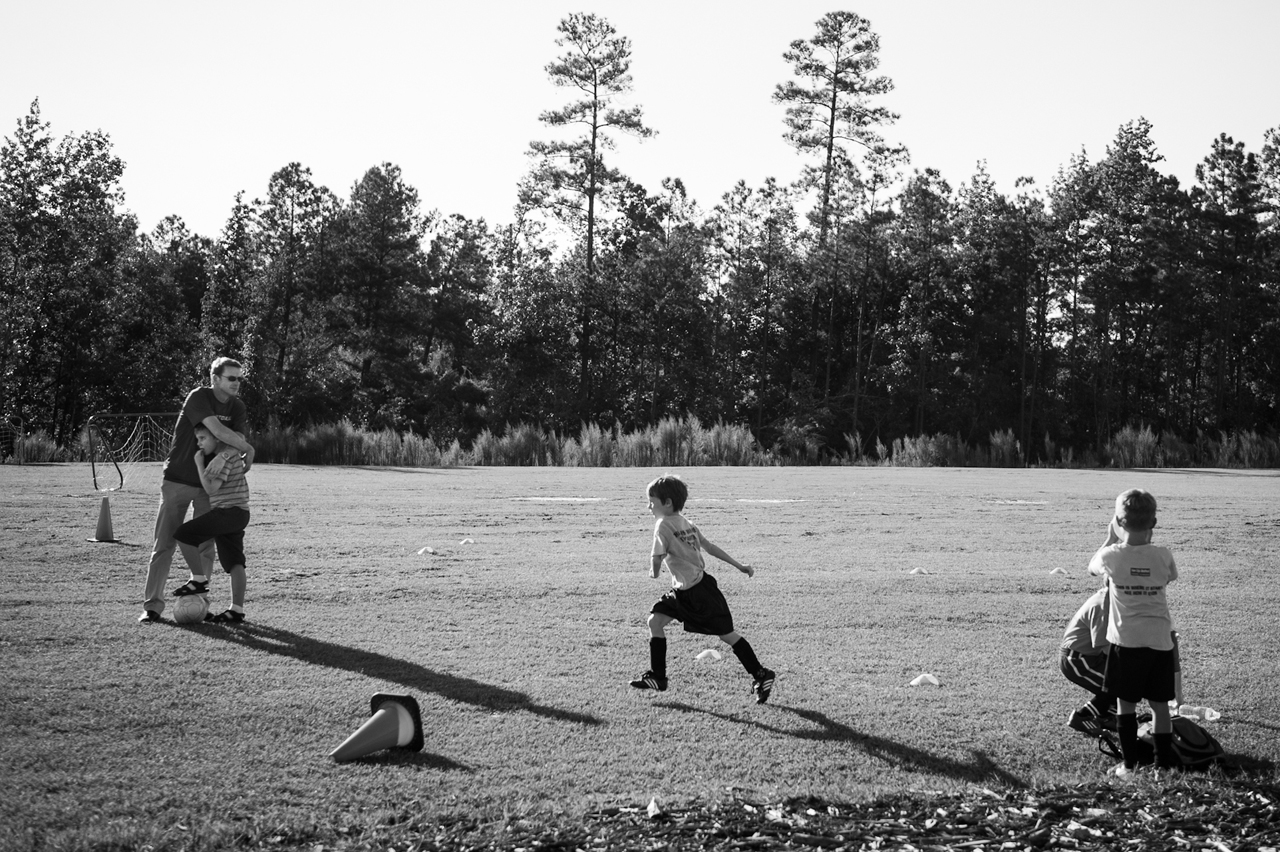
Colm, Marcus' father, shelters Marcus as they watch Brendan run during a soccer lesson. Colm has always played soccer and enjoys sharing that with Brendan. Colm works long hours to support his family, so Marcus stays close to him whenever he is home.
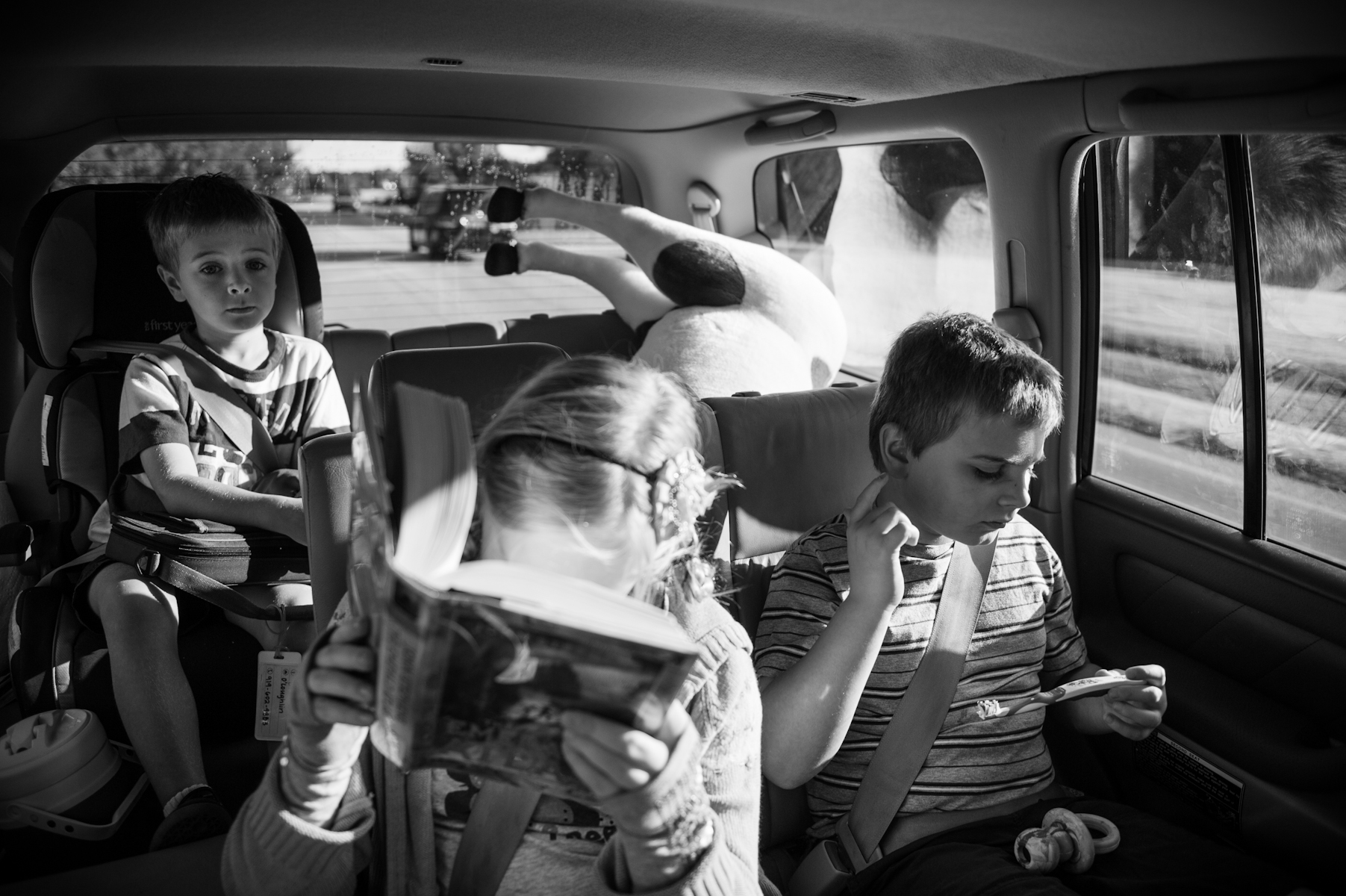
Erin explained that, for Jordan and Brendan, "having a special needs person in their lives is just natural for them. That is their world, so if they see another person with different special needs, it doesn't even phase them. Sometimes they even go up and start talking to them. They may have a question or two for me later, but that factor of inhibition and fear is simply not there and it is a beautiful thing."
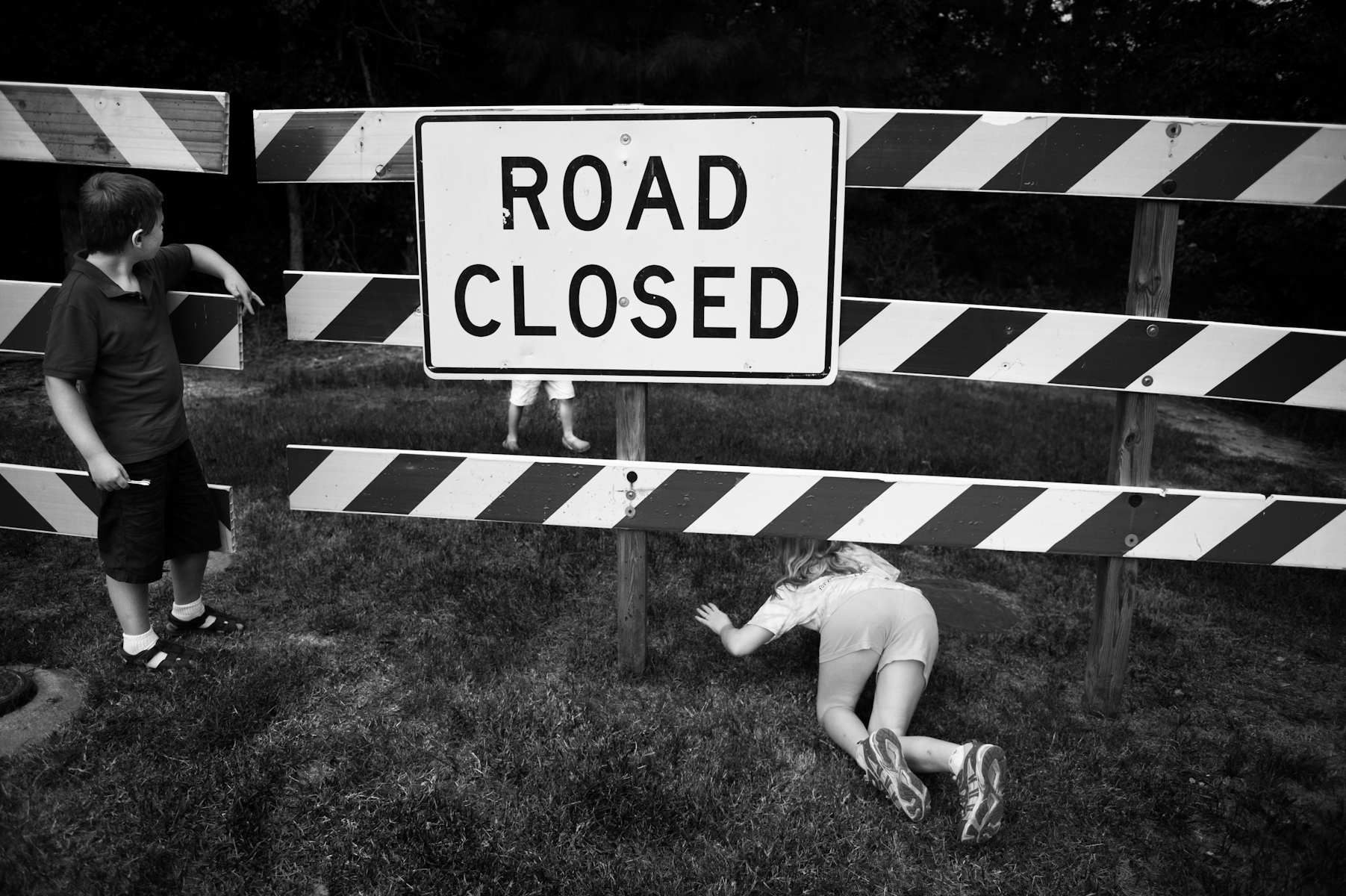
The three O'Loughlin children play at the end of their street.
Their mom said, "I want them to always know I love them for who they are, for their very existence of being here. They don't need to be Marcus' caretaker. They don't need to be strong for us. They don't need to be good girls and good boys because we have a lot on our plates. No, they just need to be typical kids."
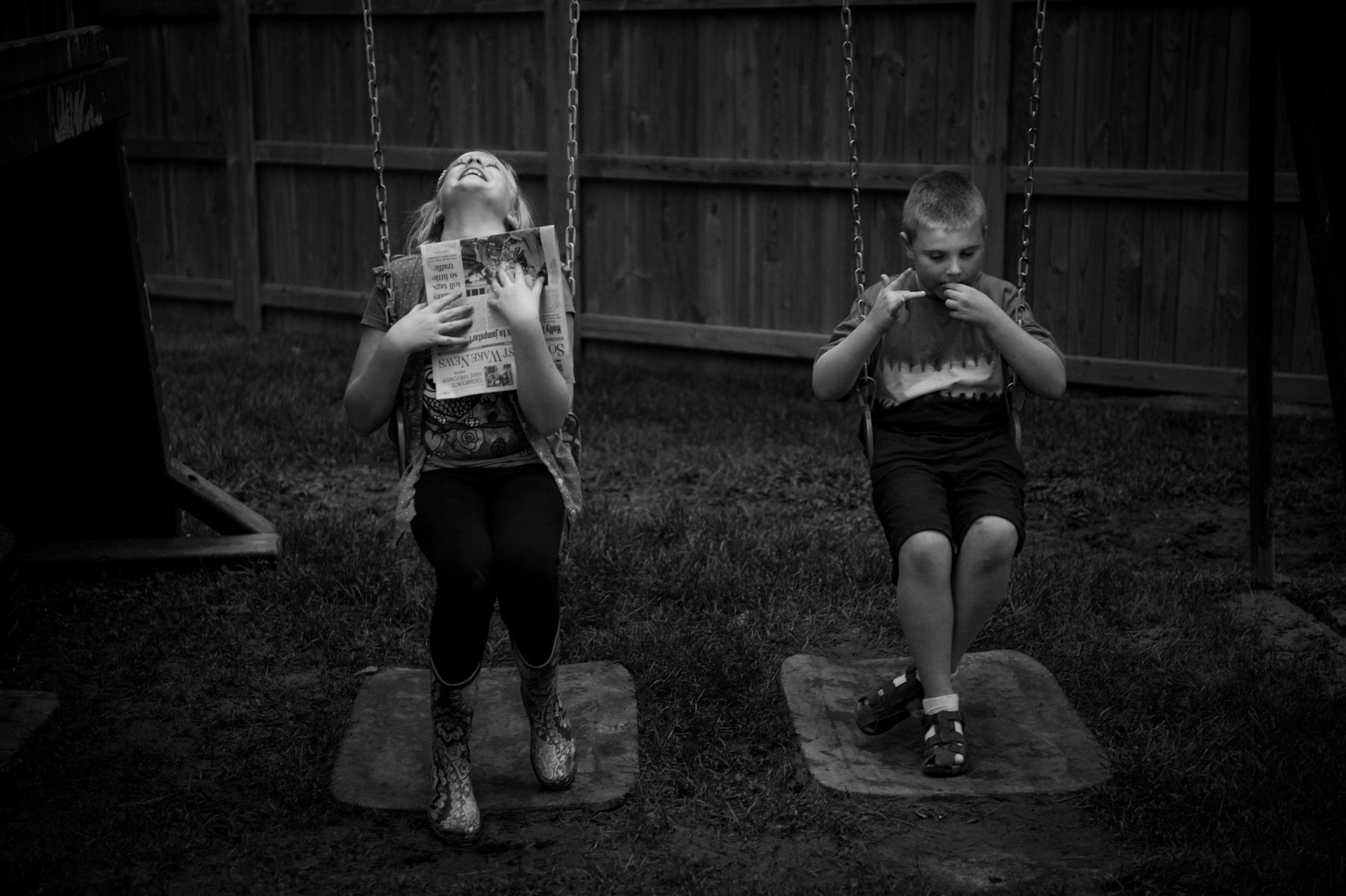
Jordan, left, was very enthusiastic about a story written in the Cary News on her mom's efforts to start 3 Irish Jewels Farm, an assisted living farm for adults with autism. Erin is still in the process of raising money, but she said, "I want to guarantee a future for Marcus and the farm is my way of doing that."
She said, "Individuals with autism have specific, different needs from your typical individual. They have high sensory issues. They cannot be in an urban environment where there are tons of sounds and crowded issues going on. They need that sense of serenity and they need an area where they can call home."
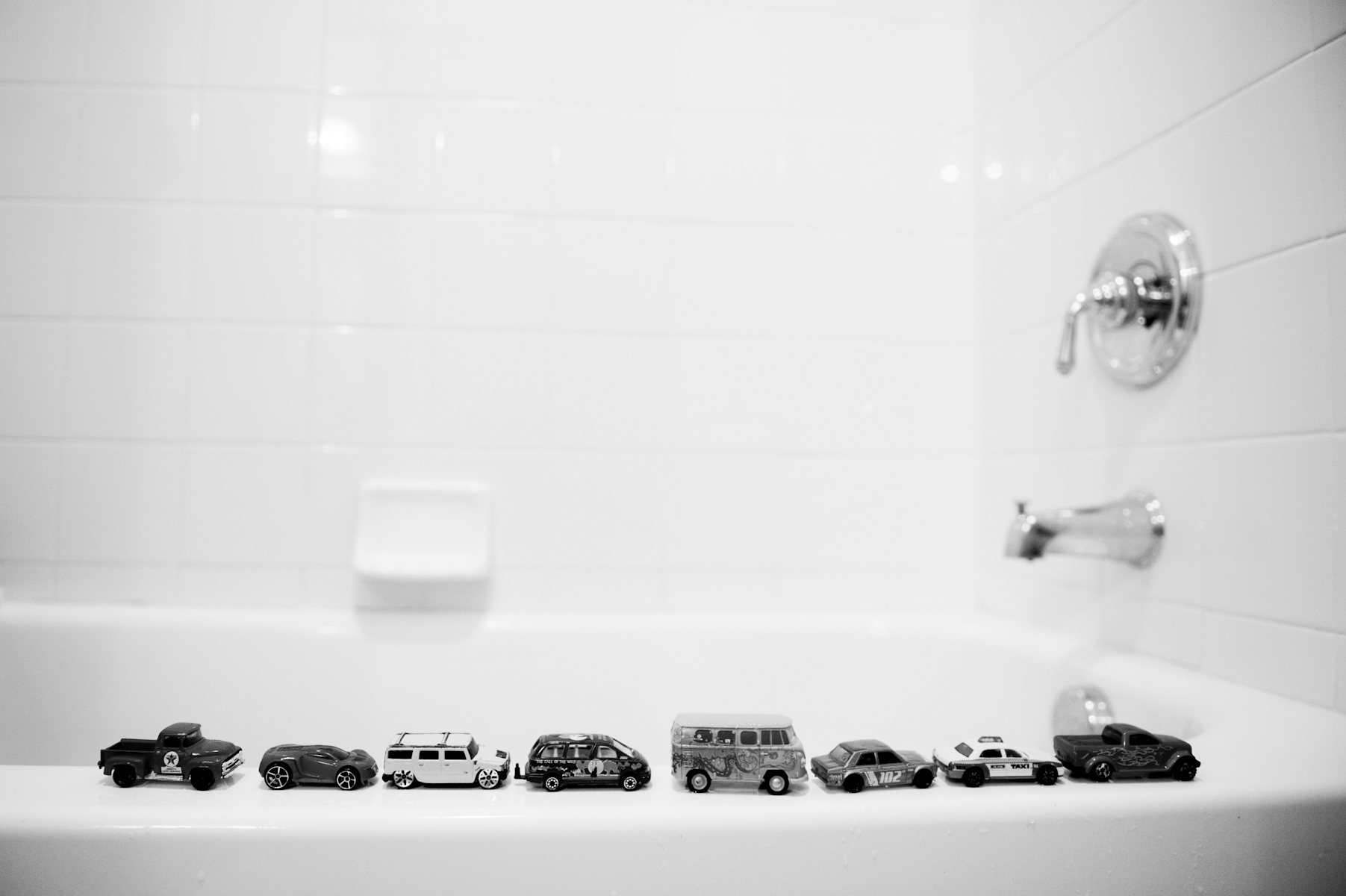
The day that Marcus was diagnosed, “all I wanted to do as I was sitting there crying was just, you know, bury my head in my son’s chest and hug him, which I tried to do and he kind of broke free away from me and went to go play with the cars,” Erin said.
Since Marcus' little brother Brendan was young, he lined these cars up on the side of the bathtub very precisely. It made Erin and Colm nervous, because that is something Marcus did around the time he was diagnosed with autism. That repetitive, obsessive behavior is a classic sign of autism, but as it turned out Brendan was merely imitating his brother, Marcus.
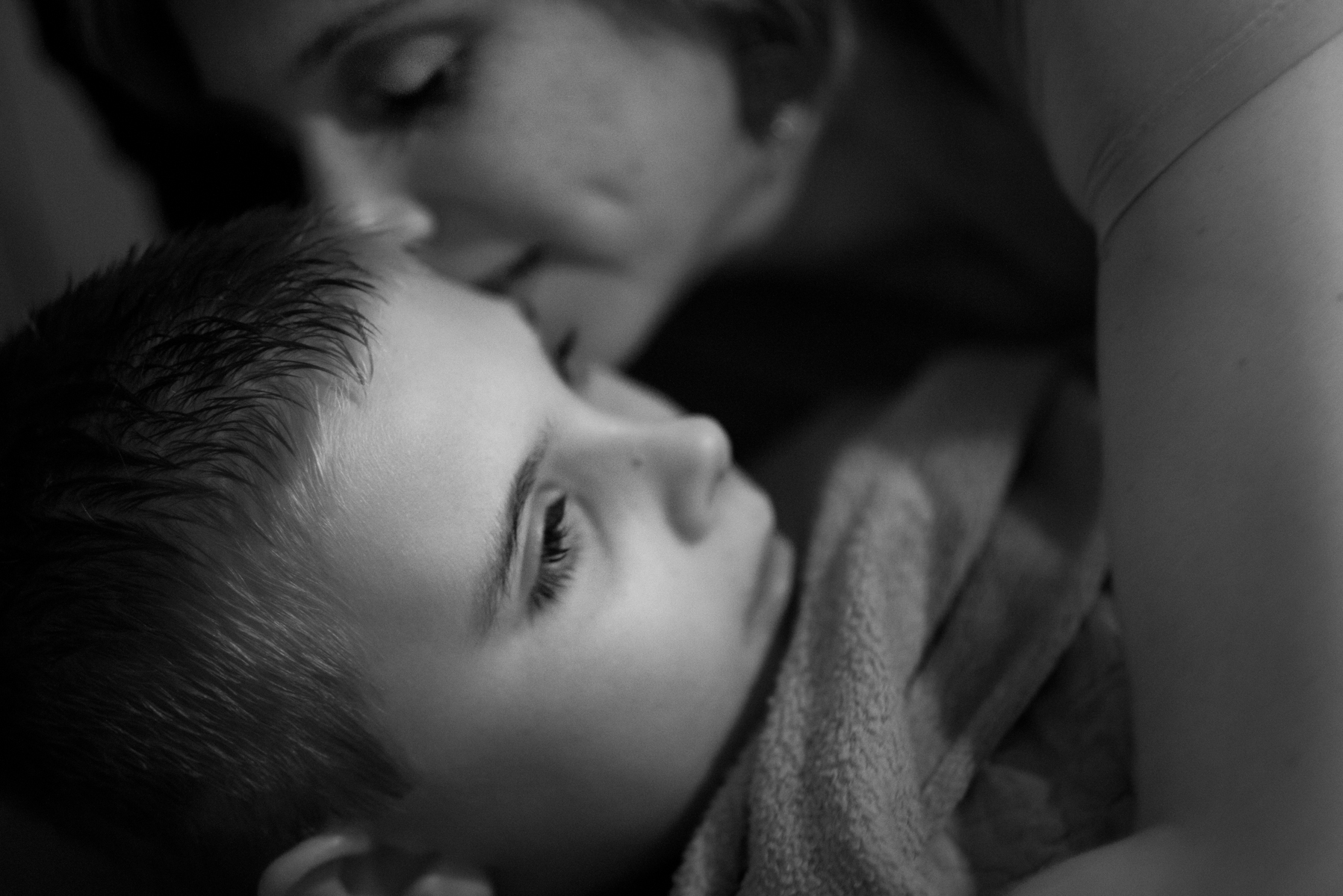
“The plain honest truth is that the plain everyday run-of-the-mill common person is given a child with special needs. At the end of the day, children with autism are not given to strong, special people. We are made strong and we are made special by having to raise that child with special needs and, yes, we are very often given more than we can handle,” Erin said.

"When your child is born you have all of these dreams and expectations for what that child may or may not become, but with a diagnosis like autism, you have to create new dreams," Erin O'Loughlin said.
The House Autism Built
"Things that wouldn't bother us might set him off completely," Erin O'Loughlin said. "A lot of it is because of overstimulation and sensory issues. So, we wind up looking for what makes him happy and what makes him tick--whats good for his reality and his world--and then we foster that."
Her son, Marcus O'Loughlin, 8, was diagnosed with autism when he was three years old.
Autism is a developmental disorder that is usually diagnosed in the first three years of a child’s life. It affects the neurological development of social and communication skills. There are various types of autism diagnoses, which are placed on a spectrum. It is still unknown whether the development of autism is related to genetics or prenatal and early childhood environment.
A version of this was published on TIME.com along with new findings from the CDC that indicate a 30% increase in autism diagnoses since 2012.
The O'Loughlin Family lives in suburban Cary, NC in one of a row of similarly built houses, but nothing is similar about the O'Loughlin Family.
Erin said, "Marcus and his autism are all my children have really ever known. Autism has always been a part of our lives so it is just a part of who they are. It is hard on Jordan and Brendan. I spend a good portion of my thoughts worrying about them resenting me later on. There is a term out in the special needs community called glass children. A glass child is a sibling of a special needs child whose parents are so consumed with the needs of their brother or sister that they look straight through them as if they are made of glass. So I am constantly keeping myself in check and trying not to take for granted their emotional health and their very real needs of their typical childhood. I know they take in and absorb everything that goes on in our house with Marcus, except that they cope with it with the coping skills of a child. We try our hardest to balance the needs of Marcus versus Jordan and Brendan’s needs versus our marital needs versus our family needs and its all a huge balancing act."
Erin said, "I often try to think what it must be like in his little brain and I envision fireworks, just fireworks going off. I don’t know what it is like in there, but it must be like living with constant noises and sounds and explosions going off all the time."
"We know in our hearts that Marcus is going to need assistance for the rest of his life," Erin said. "There's still this hole in our community and our society that exists for adults with autism. It does not stop at age 18, it is not something you grow out of."
One in every 88 children is diagnosed with autism. Erin is concerned that "10-15 years from now we're going to have a huge problem on our hands. Not all of them are severe enough where they are going to need constant intervention and services for the rest of their lives, but many of them are."
"As far as Marcus living a regular normal life with everybody else in the world, that might not be right for him and he might not be happy with that, so why should I push that on him? We just want Marcus to be happy. We want him to reach his full potential, whatever that might be."
Marcus has a one-on-one session with his teacher, Kim Lopes, at Middle Creek School. He has been in the same autism-specific classroom for two years. However, he must move up to a higher class level next year, despite being unprepared for the material.
Marcus spends much of his time at school watching children play outside. Middle Creek Elementary is primarily for what the autism community calls "typical" children--those who do not have developmental disabilities. Erin considers herself lucky that there is an autism-specific classroom in her area. This type of classroom is becoming much less common and is vital to Marcus' development.
Colm, Marcus' father, shelters Marcus as they watch Brendan run during a soccer lesson. Colm has always played soccer and enjoys sharing that with Brendan. Colm works long hours to support his family, so Marcus stays close to him whenever he is home.
Erin explained that, for Jordan and Brendan, "having a special needs person in their lives is just natural for them. That is their world, so if they see another person with different special needs, it doesn't even phase them. Sometimes they even go up and start talking to them. They may have a question or two for me later, but that factor of inhibition and fear is simply not there and it is a beautiful thing."
The three O'Loughlin children play at the end of their street.
Their mom said, "I want them to always know I love them for who they are, for their very existence of being here. They don't need to be Marcus' caretaker. They don't need to be strong for us. They don't need to be good girls and good boys because we have a lot on our plates. No, they just need to be typical kids."
Jordan, left, was very enthusiastic about a story written in the Cary News on her mom's efforts to start 3 Irish Jewels Farm, an assisted living farm for adults with autism. Erin is still in the process of raising money, but she said, "I want to guarantee a future for Marcus and the farm is my way of doing that."
She said, "Individuals with autism have specific, different needs from your typical individual. They have high sensory issues. They cannot be in an urban environment where there are tons of sounds and crowded issues going on. They need that sense of serenity and they need an area where they can call home."
The day that Marcus was diagnosed, “all I wanted to do as I was sitting there crying was just, you know, bury my head in my son’s chest and hug him, which I tried to do and he kind of broke free away from me and went to go play with the cars,” Erin said.
Since Marcus' little brother Brendan was young, he lined these cars up on the side of the bathtub very precisely. It made Erin and Colm nervous, because that is something Marcus did around the time he was diagnosed with autism. That repetitive, obsessive behavior is a classic sign of autism, but as it turned out Brendan was merely imitating his brother, Marcus.
“The plain honest truth is that the plain everyday run-of-the-mill common person is given a child with special needs. At the end of the day, children with autism are not given to strong, special people. We are made strong and we are made special by having to raise that child with special needs and, yes, we are very often given more than we can handle,” Erin said.
"When your child is born you have all of these dreams and expectations for what that child may or may not become, but with a diagnosis like autism, you have to create new dreams," Erin O'Loughlin said.













